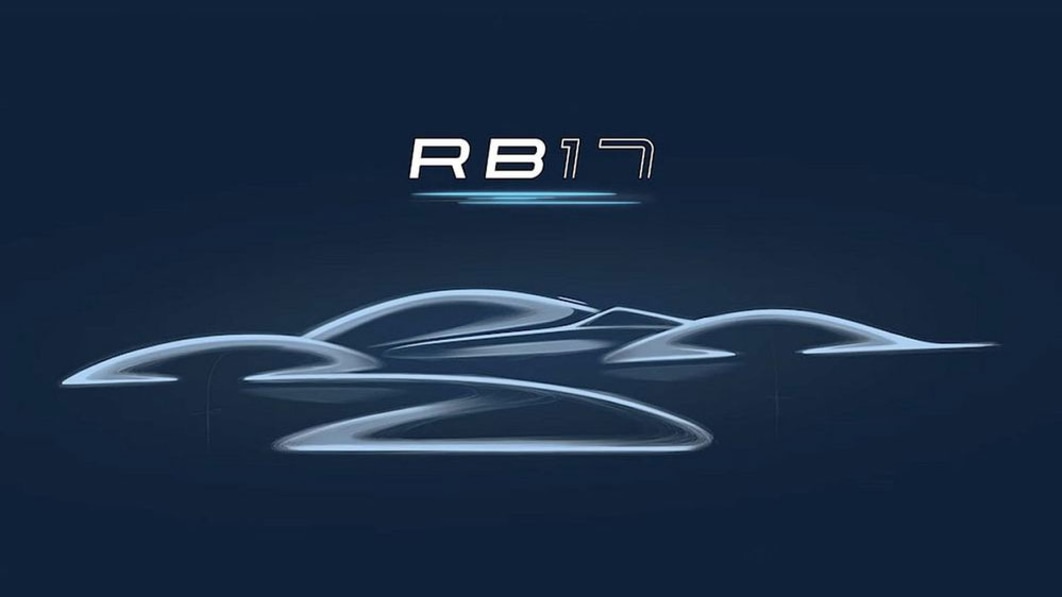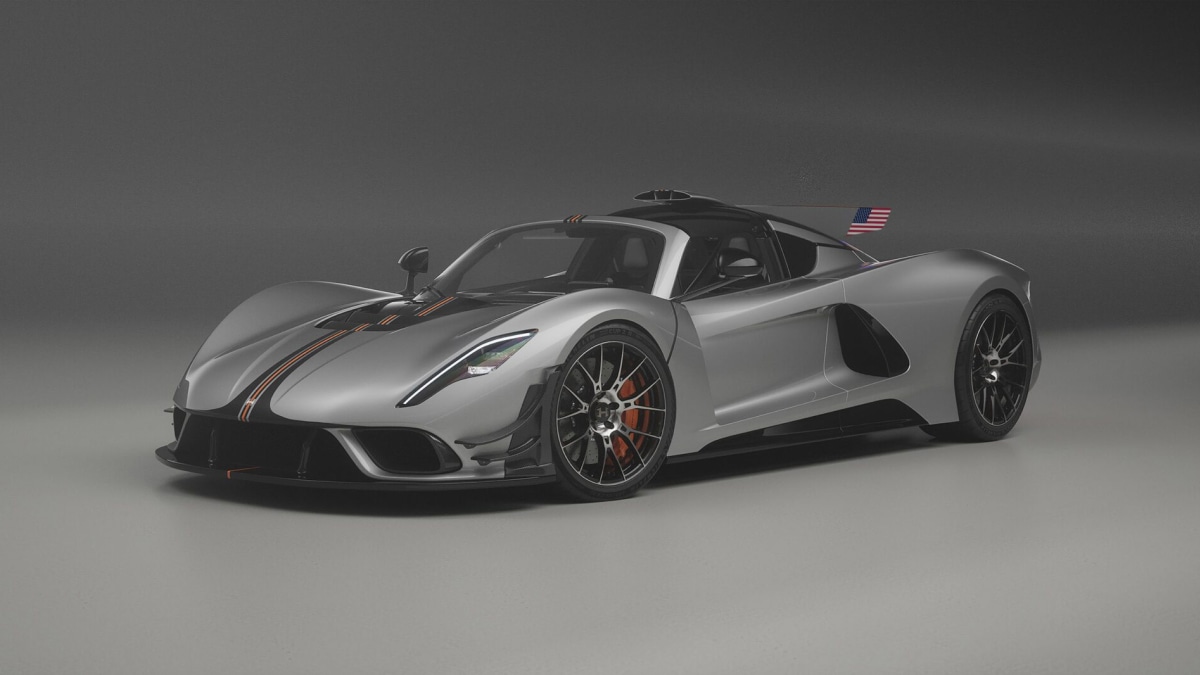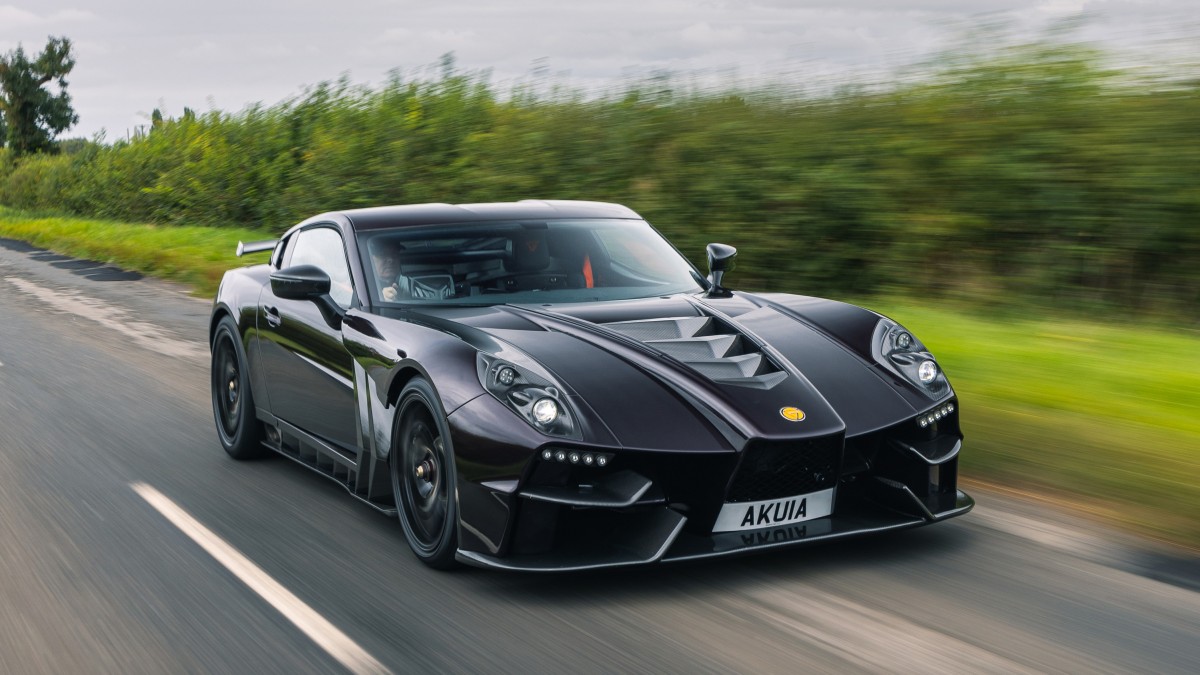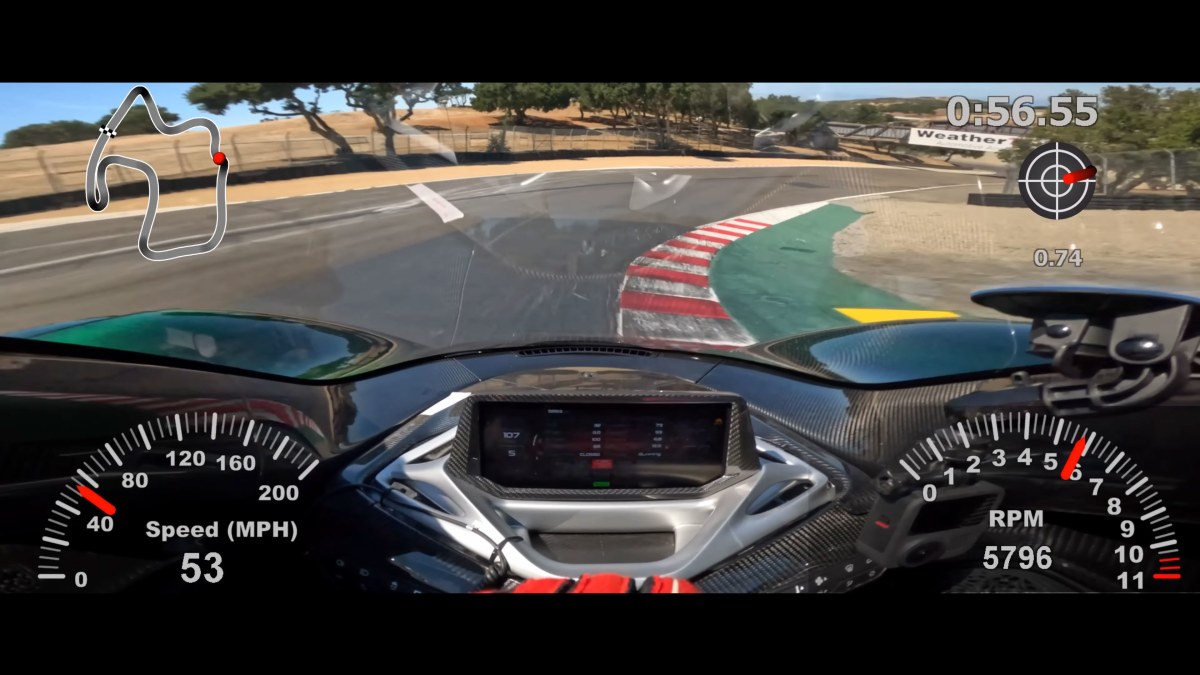In 2022, Red Bull Advanced Technologies (RBAT) announced the development of a new hypercar, the RB17. RBAT is the commercial technology arm for the Oracle Red Bull Racing Formula 1 team — akin to Williams Advanced Engineering, it’s a place to market technologies developed for F1 and to employ engineers cut from the F1 team when the sport introduced a cost cap. The track-only car’s rough specs in the announcement were a twin-turbocharged V8 hybrid powertrain making 1,250 horsepower, bodywork incorporating every useful F1 performance aid both legal and banned, a price of five million pounds ($6.4M U.S.) plus taxes and options, and a market launch in 2025. Evo magazine, via an interview Red Bull team principal Christian Horner gave to Sky Sports, revealed the debut’s been pushed up to this year instead of 2025 and provided a few more details on what’s inbound.
An unnamed third party is building the twin-turbo V8 engine and, if not the entire transmission, the gearsets inside. Red Bull still isn’t ready to disclose the engine maker, so we’re going to put two placeholder possibilities here. First, Red Bull announced the RB17 in June 2022, stating that the coupe was in the “advanced stages of development.” Porsche began making noises about joining F1 in 2021, then announced it would pair with Red Bull in July 2022, one month after the RB17 news. And Porsche knows all about hybridized twin-turbo V8s and racy track cars. The collaboration process went far enough to reveal that Porsche planned a ten-year project that involved taking a 50% stake in Red Bull F1. In March 2023, both parties deep-sixed the deal over a disagreement about a controlling stake, but there’s no reason the breakup would need to end a potential powertrain partnership for the RB17.
Second, the placeholder we’d love to see: A Ford engine in the RB17. One month before Red Bull and Porsche officially hit the rocks, Ford announced it would return to F1 with Red Bull in 2026. We have no idea what engine sits behind the RB17’s cockpit, and suspect the chance of it wearing a Blue Oval badge (for due cause, not badge engineering) are close enough to zero to be considered zero, but that doesn’t stop us from thinking it would be great to see.
Horner said the RB17’s target weight is 900 kilograms (1,984 pounds). Top Gear, which drove Red Bull’s most recent track-only hypercar project, the non-hybrid, V12-powered Aston Martin Valkyrie AMR Pro, said it weighs 1,009 kg (2,225 lbs). The track-only version of the road-legal Gordon Murray Automotive T.50, called the T.50s, weighs 851 kg (1,878 pounds). For comparison, last year’s minimum weight for an F1 car was 798 kg (1,759 pounds).
Red Bull’s targeting a lower center of gravity for its 900 kg than found on the Valkyrie AMR Pro. The RB17’s said to have a longer wheelbase than that of the 124-inch span on the Aston Martin, the Pro’s wheelbase itself stretched 15 inches beyond the wheelbase of the regular road Valkyrie. The RB17’s also expected with larger wheels, too, meaning hoops larger than 18 inches, a bit surprising seeing that would outdo the spec sizes for F1 and LMP1 cars as well.
Motorsports fans have long mused on what Red Bull chief technology officer Adrian Newey could create without restrictions; Red Bull has done the same, creating virtual concepts like the X1 for Gran Turismo in 2010. The RB17 will be the first real-world demonstration, originally described with phrases like “All the tricks we’ve learned in F1” and “Adrian’s greatest hits.”
Production begins in RBAT facilities later this year, the division capping assembly at no more than 15 per year. With a planned production run of 50 cars, that’s more than three years for builds. The multi-million-pound purchase price is said to pay for service and maintenance, access to Red Bull simulators, and on-track instruction. And Christian Horner wants everyone to know, “It will sound fantastic, like a track car should.”
Related Video:




